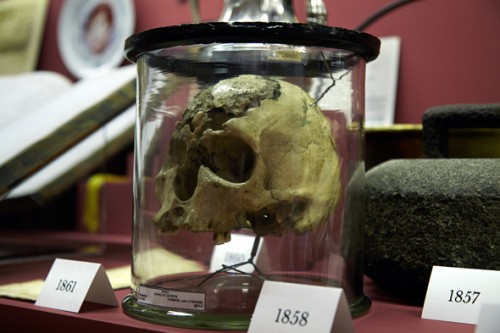 Saturday 1st February, 11am, Talbot Rice Gallery
Saturday 1st February, 11am, Talbot Rice Gallery
Voices from the Past
Join us for a performative talk by Pauline Goldsmith and Ruth Honeybone, travelling backwards and forwards through time, creating a picture of the Royal Edinburgh hospital from the perspective of the people who have lived and worked there over the past 200 years.
During the research for Mark Dion’s ‘200 Years, 200 Objects’, many stories about the Royal Edinburgh Hospital were unearthed. Some of these were obvious fabrications, whilst others would appear to be true, but all need to be told.
Artlink has put together a talk which knits together all these stories, from interviews and anecdotes found within the archive, to old newspaper articles and letters from 19th century patients. The result is a fascinating portrait of the Royal Edinburgh Hospital that is at times sad, at times humorous.
Introduced by Alison Stirling, Artlink.
Pauline Goldsmith is an award winning actress, comedian and writer.
Ruth Honeybone is manager of Lothian Health Services Archive and has been a key contributor to the research behind the Ever, Present Past exhibition.
This is a FREE event, but booking is required.
Saturday 8 February, 11am, Talbot Rice Gallery
Healing for Mind & Body – a history of hospital landscapes in Scotland
In an illustrated talk, Christopher Dingwall will consider how the designed landscapes that surround many of Scotland’s hospitals came to be seen as important in the treatment of patients.
The pioneering work of Dr. W.A.F. Browne, first at the Montrose Asylum, and later at the Crichton Royal Institution in Dumfries, will be considered, as will the way in which his ideas on occupational therapy grew out of his links with the early 19th century phrenological movement. Parallels with be drawn with other reform movements of the period, which saw the development of public parks and garden cemeteries.
Christopher Dingwall is a freelance landscape historian, formerly Conservation Officer, and now Honorary Research Adviser to the Garden History Society in Scotland. Among his special interests is that of 19th century social reform movements, and the ways in which these were reflected in the design of parks and gardens of the period.
This is a FREE event, but booking is required.
